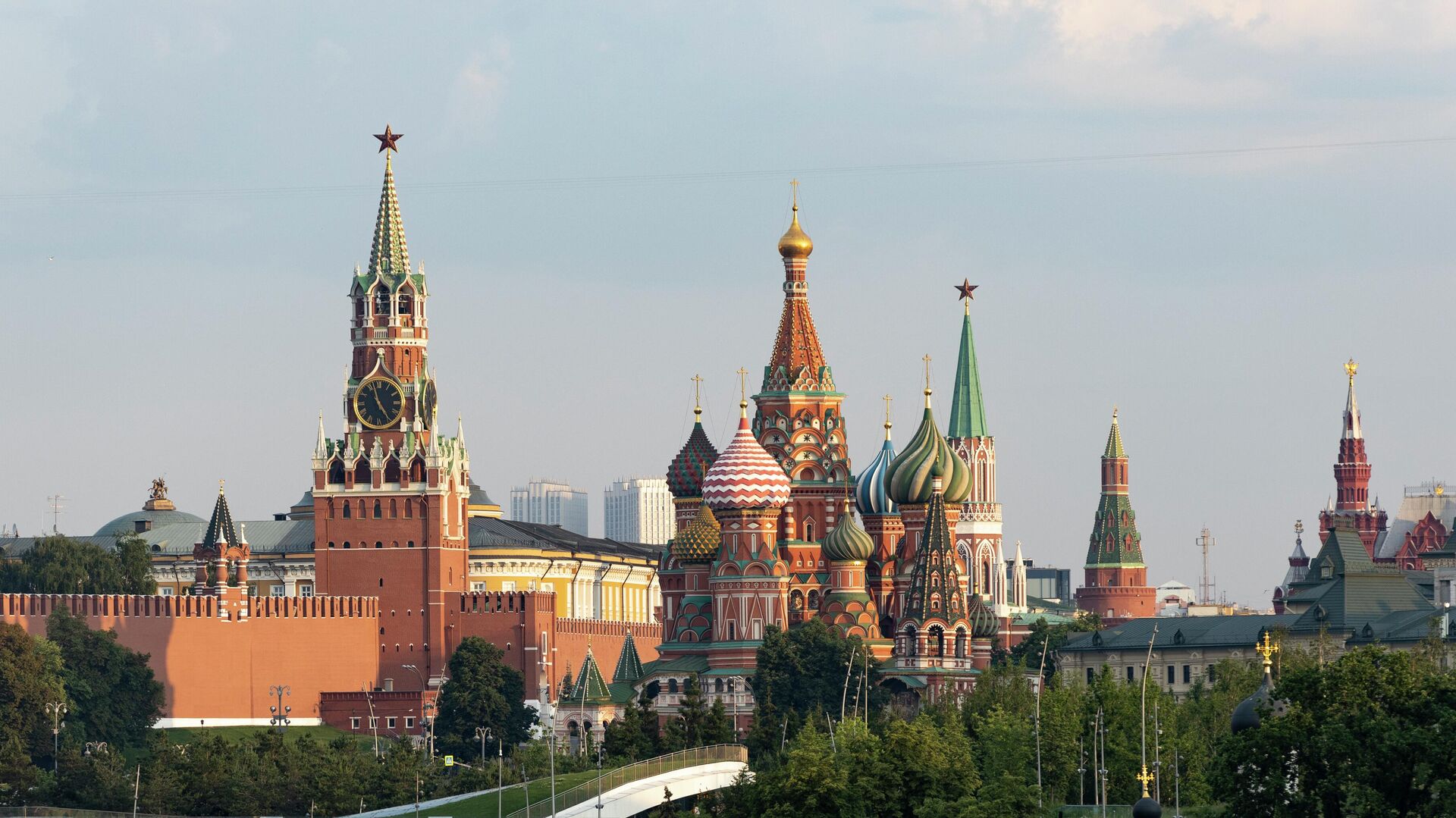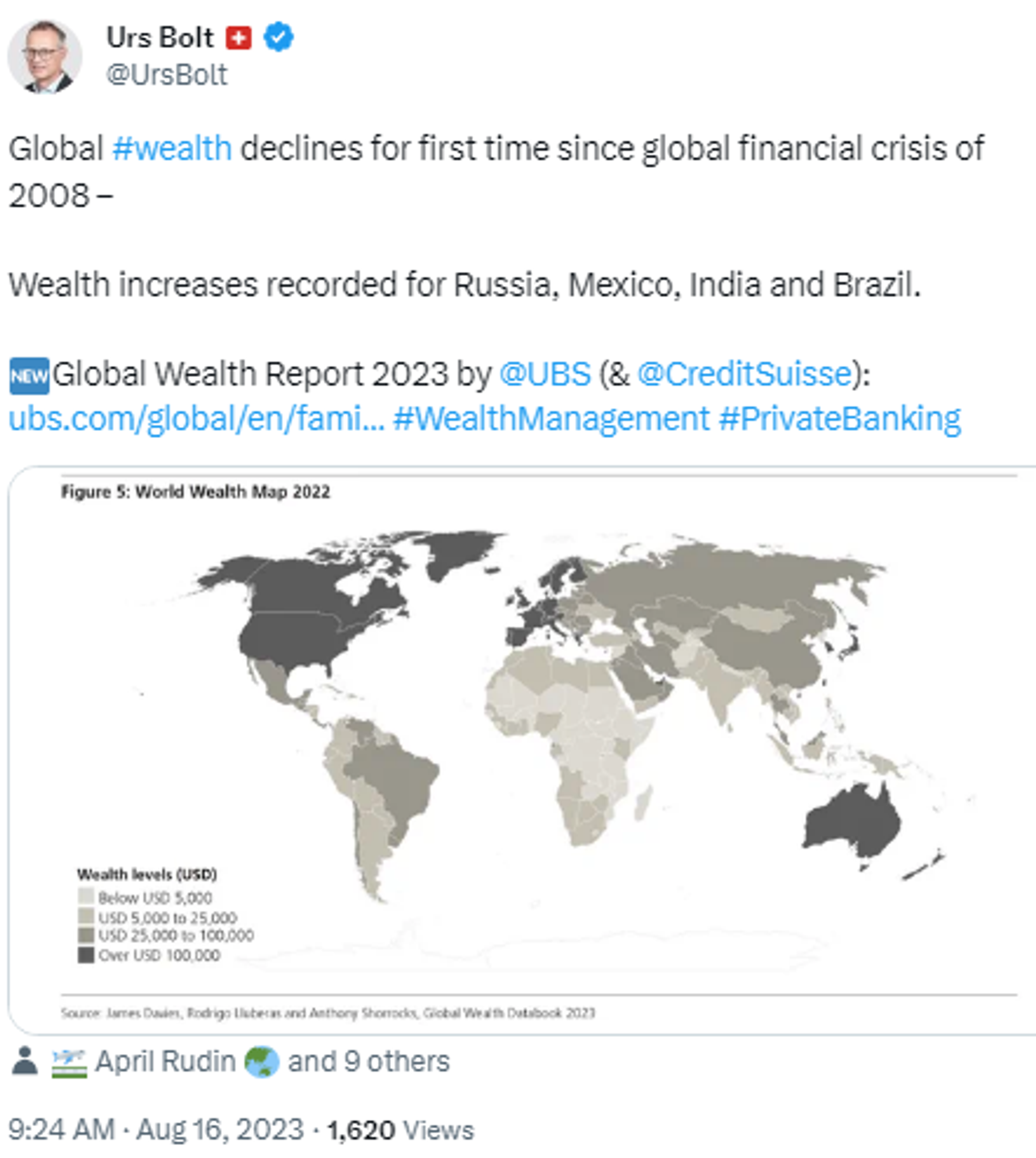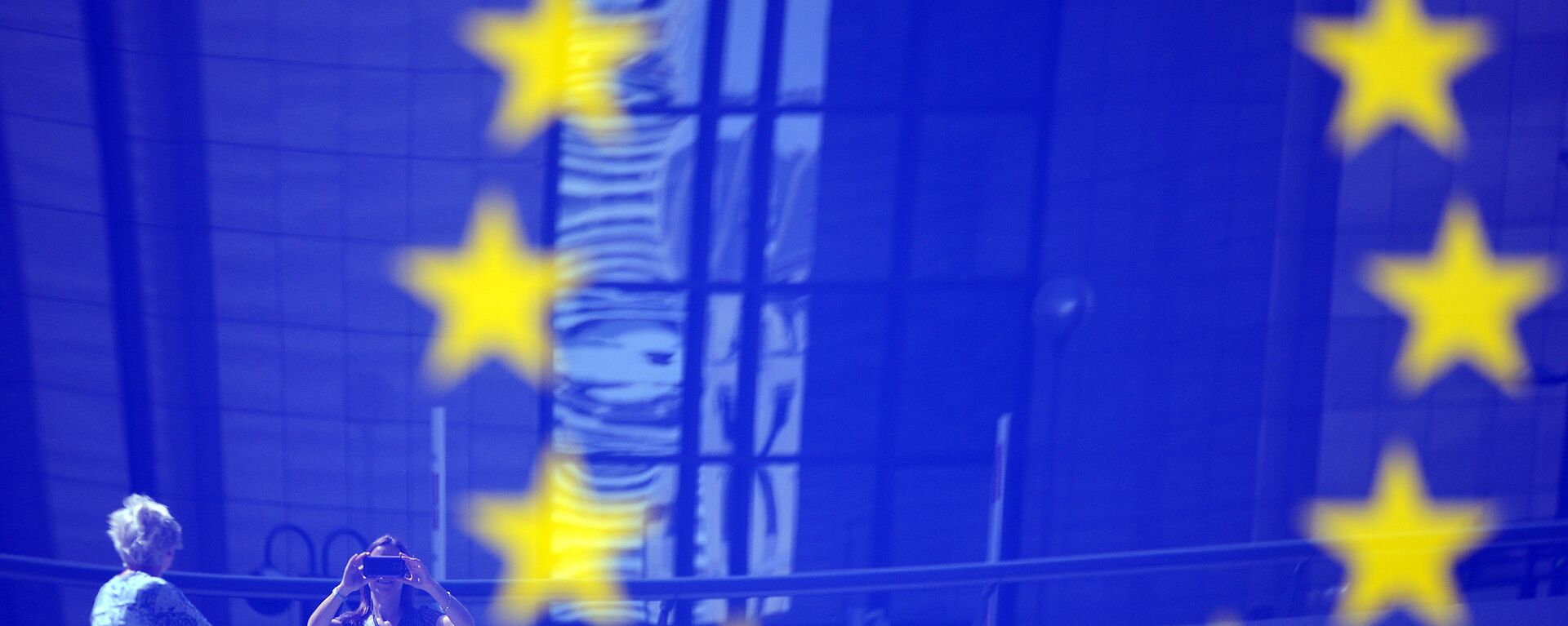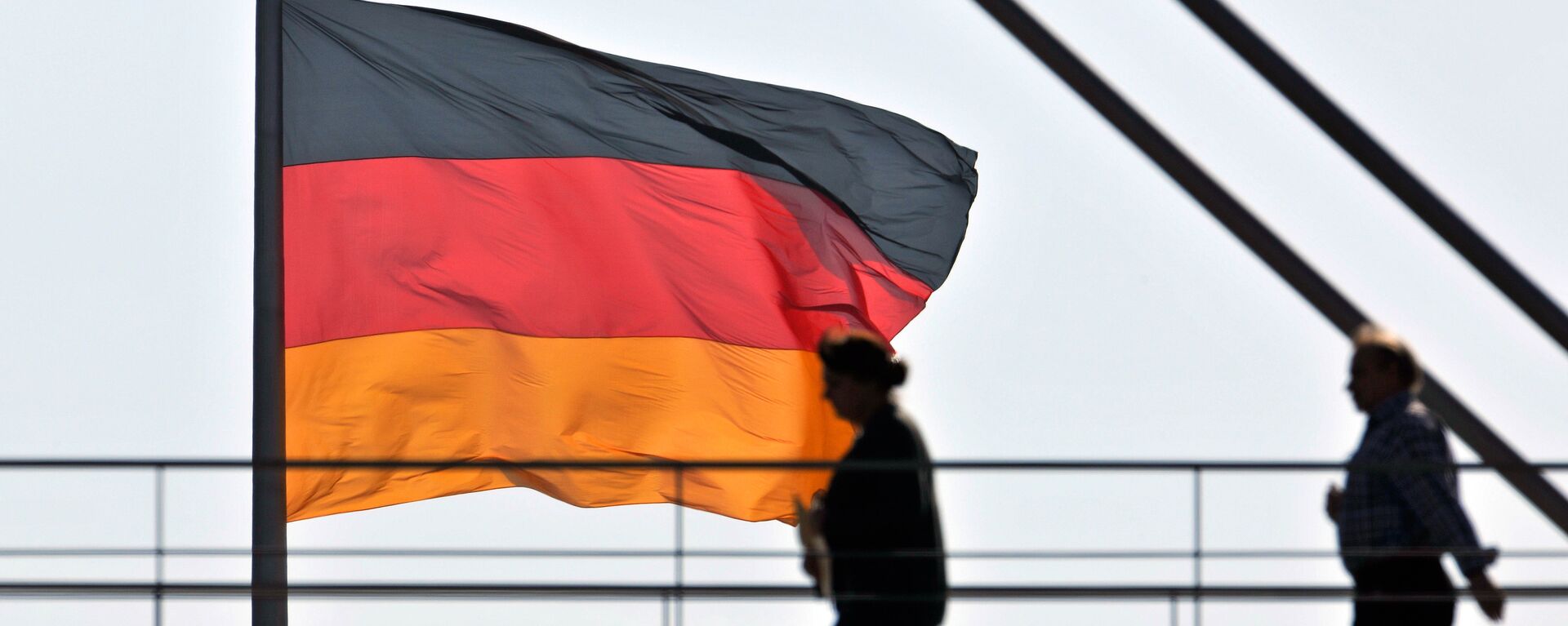https://sputnikglobe.com/20230817/russia-grows-richer-while-west-bleeds-trillions-amid-failed-sanctions--funding-ukraine-1112666650.html
Russia Gets Richer While West Bleeds Trillions in Funding Ukraine Amid Failed Sanctions
Russia Gets Richer While West Bleeds Trillions in Funding Ukraine Amid Failed Sanctions
Sputnik International
Despite being sanctioned by the West over Ukraine, Russia grew richer last year, according to the 14th edition of the Global Wealth Report.
2023-08-17T11:09+0000
2023-08-17T11:09+0000
2023-08-17T12:17+0000
russia
russian economy under sanctions
inflation
recession
nord stream
nord stream pipeline
ukraine crisis
economy
https://cdn1.img.sputnikglobe.com/img/07e7/08/11/1112666454_661:0:4302:2048_1920x0_80_0_0_04b0e85094571f3ff63efec4afba3008.jpg
Despite being sanctioned by the countries of the so-called collective West, Russia grew richer last year, according to the 14th edition of the Global Wealth Report.Moscow was able to add an increment of total wealth to the tune of $600 billion, according to a report put together jointly by Credit Suisse and the Zurich-based banking multinational, UBS, published on August 15.The number of Russian millionaires also shot up by about 56,000 reaching 408,000 in 2022. As for individuals worth over $50 million, their number rose in Russia by nearly 4,500, based on the report. On the other hand, the US and Europe that have been funneling vast amounts of military aid to fuel the ongoing proxy war against Russia in Ukraine, which has hemorrhaged trillions of dollars. The United States lost more wealth than any other country in 2022, as per the reported figures, losing $5.9 trillion. North America and Europe, together, grew $10.9 trillion poorer. Despite the US continuing to account for over 50 percent of the world's “ultra-high-net-worth” people, as 2022 wrapped up, 1 million Americans lost their millionaire status.Countries like India, Mexico, and Brazil added significant amounts of wealth in 2022, while the largest losses fell to the US, Canada, Australia, Japan, and China.Overall, in 2022, global wealth declined for the first time since the Great Recession of 2008, it was revealed.Sanctions Flop Like Friendly FireAll these above-cited figures and percentages only serve to highlight the fact that while cobbled together to inflict a “crippling” blow to Russia's economy, the US/EU-led sanctions over the Ukraine crisis struck Western businesses like "friendly fire." This June, the Council of the European Union announced that it had adopted the 11th package of sanctions against Russia, aimed at strengthening the existing restrictions and preventing their circumvention. However, sanctions harmed many EU countries much more than Russia. European Union business leaders have been voicing concerns over the bloc’s ability to withstand the long-term economic repercussions of last year’s decision to restrict the import of Russian energy. German opposition leader Friedrich Merz warned that Berlin may be on a course to irreversible de-industrialization. These fears were first made public by economists late last year after the destruction of the Nord Stream pipelines in September 2022. German chemical giant BASF had revealed its plans to relocate part of its production facilities to China, citing high energy costs. Germany had relied on Moscow's pipeline gas since the 1970s, however, Washington twisted Berlin's arm into joining the West's sweeping energy embargo against Russia.Following the sanctions crusade targeting Moscow over its special military operation in Ukraine, European companies have reported a combined €100 billion ($109.9 billion) loss from cutting ties with Russia. The restrictions were aimed at almost all sectors of Russia's economy, with the Central Bank's assets frozen, and access to the Society for Worldwide Interbank Financial Telecommunications (SWIFT) canceled. Furthermore, since February 2022 Western companies have started pulling out their operations en masse, while suffering balance sheet losses.As for the United States, it has since faced raging inflation, a bleak economy and a looming recession, all the while continuing to channel vast military aid to the regime in Kiev (not that the billions in assistance have helped Ukraine make any headway in its “counteroffensive”).Russia’s economy, proved more than resilient. The World Bank reported earlier in August that by the end of 2022, Russia's wealth in purchasing power parity (PPP) terms exceeded $5 trillion for the first time — putting it ahead of Western Europe's three biggest economies, namely, France, financial giant Great Britain and the industrial powerhouse Germany.
https://sputnikglobe.com/20230807/eu-sanctions-punish-european-businesses-more-than-russia-1112446759.html
https://sputnikglobe.com/20230527/germanys-recession-is-eus-first-falling-domino-1110615851.html
https://sputnikglobe.com/20230810/russian-economy-overtakes-germany-uk-and-france-despite-western-sanctions-1112511026.html
russia
Sputnik International
feedback@sputniknews.com
+74956456601
MIA „Rossiya Segodnya“
2023
News
en_EN
Sputnik International
feedback@sputniknews.com
+74956456601
MIA „Rossiya Segodnya“
Sputnik International
feedback@sputniknews.com
+74956456601
MIA „Rossiya Segodnya“
global wealth report, credit suisse and swiss investment bank ubs report, russian millionaires, total wealth, global wealth decline,
global wealth report, credit suisse and swiss investment bank ubs report, russian millionaires, total wealth, global wealth decline,
Russia Gets Richer While West Bleeds Trillions in Funding Ukraine Amid Failed Sanctions
11:09 GMT 17.08.2023 (Updated: 12:17 GMT 17.08.2023) The much-hyped sanctions unleashed by the West to “cripple” the Russian economy since 2022 have backfired on those, fuelling NATO’s proxy war against Moscow in Ukraine. As a result, the “tables were turned”, with Western countries facing everything from raging inflation, recession fears, to looming de-industrialization.
Despite being
sanctioned by the countries of the so-called collective West, Russia grew richer last year, according to the 14th edition of the
Global Wealth Report.
Moscow was able to add an increment of total wealth to the tune of $600 billion, according to a report put together jointly by Credit Suisse and the Zurich-based banking multinational, UBS, published on August 15.
The number of Russian millionaires also shot up by about 56,000 reaching 408,000 in 2022. As for individuals worth over $50 million, their number rose in Russia by nearly 4,500, based on the
report.
On the other hand, the US and Europe that have been funneling vast amounts of military aid to fuel the ongoing proxy war against Russia in Ukraine, which has hemorrhaged trillions of dollars. The United States lost more wealth than any other country in 2022, as per the reported figures, losing $5.9 trillion. North America and Europe, together, grew $10.9 trillion poorer. Despite the US continuing to account for over 50 percent of the world's “ultra-high-net-worth” people, as 2022 wrapped up, 1 million Americans lost their millionaire status.
Countries like India, Mexico, and Brazil added significant amounts of wealth in 2022, while the largest losses fell to the US, Canada, Australia, Japan, and China.
Overall, in 2022, global wealth declined for the first time since the Great Recession of 2008, it was revealed.
Sanctions Flop Like Friendly Fire
All these above-cited figures and percentages only serve to highlight the fact that while cobbled together to inflict a “crippling” blow to Russia's economy, the US/EU-led
sanctions over the Ukraine crisis struck Western businesses like "friendly fire." This June, the Council of the European Union announced that it had adopted the 11th package of sanctions against Russia, aimed at strengthening the existing restrictions and preventing their circumvention. However, sanctions harmed many EU countries much more than Russia. European Union business leaders have been voicing concerns over the bloc’s ability to withstand the long-term economic repercussions of last year’s decision to restrict the import of Russian energy. German opposition leader Friedrich Merz warned that Berlin may be
on a course to irreversible de-industrialization. These fears were first made public by economists late last year after the
destruction of the Nord Stream pipelines in September 2022. German chemical giant BASF had revealed its plans to relocate part of its production facilities to China, citing high energy costs. Germany had relied on Moscow's pipeline gas since the 1970s, however, Washington twisted Berlin's arm into joining the West's sweeping energy embargo against Russia.
Following the sanctions crusade targeting Moscow over its special military operation in Ukraine, European companies have reported a combined €100 billion ($109.9 billion) loss from cutting ties with Russia. The restrictions were aimed at almost all sectors of Russia's economy, with the Central Bank's assets frozen, and access to the Society for Worldwide Interbank Financial Telecommunications (SWIFT) canceled. Furthermore, since February 2022 Western companies have started pulling out their operations en masse, while suffering balance sheet losses.
As for the United States, it has since faced raging inflation,
a bleak economy and a looming recession, all the while continuing to channel vast military aid to the regime in Kiev (not that the billions in assistance have helped Ukraine make any headway in its “counteroffensive”).
Russia’s economy, proved more than resilient. The World Bank reported earlier in August that by the end of 2022, Russia's wealth in purchasing power parity (PPP) terms exceeded $5 trillion for the first time — putting it ahead of Western Europe's three biggest economies, namely, France, financial giant Great Britain and the industrial powerhouse Germany.
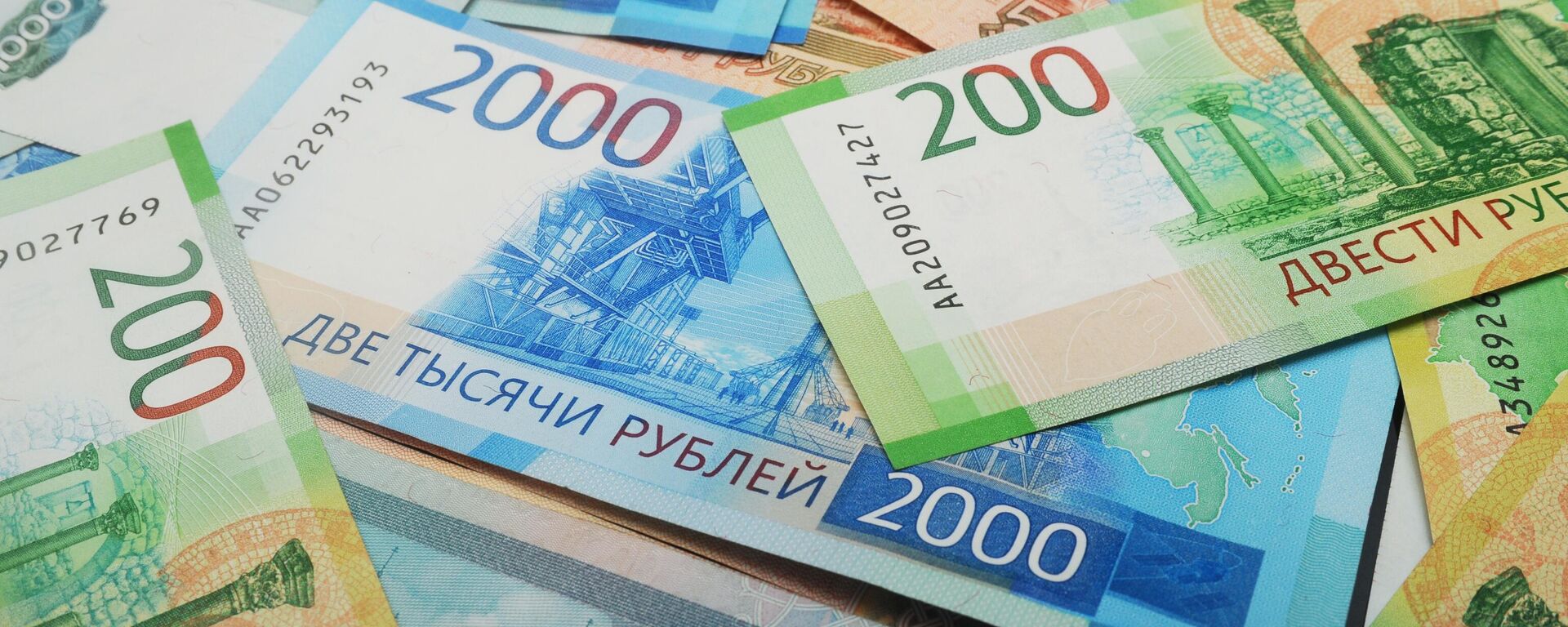
10 August 2023, 17:52 GMT
